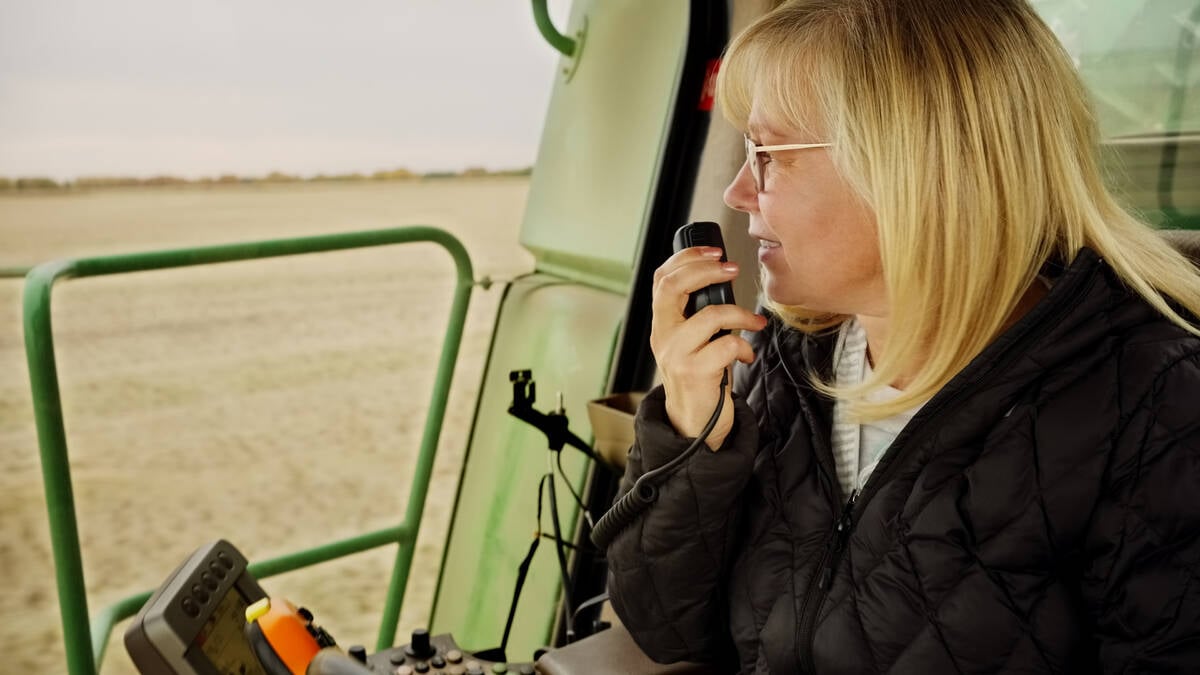We are in winter prep mode. We are bringing cattle home from leased pastures and making sure everything is in place to handle a foot of snow, should it come. One benefit of the seasonality of farming in a northern climate is the relative downtime winter provides. It allows for reflection and rest. It is also a time to invest in continuing education and peer support.
Reflection, curiosity and continuing education are learned and intentional parts of how we run our farm in southwestern Manitoba. Reflective questions help us make decisions for what we might need to change or do differently in future: “What are the things we need to learn about and integrate to make our business and family dynamic and farm better?”
As entrepreneurs, and producers, we often focus heavily on production, marketing and finance. These are good things, and certainly play a role in some of the questions asked above. One area we have been exploring more in our farm and business — and I often encourage other entrepreneurs to invest more in via my facilitation work — is human resources training. Learning the people side of things is particularly helpful if you have employees or work multi-generationally. It can also help with spousal and sibling partnerships.
Read Also

Avoid these thought traps when investing
Investing for Fun and Profit: Let’s review a list, by renowned fund manager Peter Lynch, of the most dangerous things that stock market investors can say to themselves, or to others.
Here are some key areas that fall under HR management, where skills development can be as critical for your operation as your production and marketing plans:
Staff training and retention
We need people to work on our farms. We require the skills and abilities to provide training and upskilling opportunities for ourselves and also for staff and the next generation. There is a huge incentive to retain key talent and skilled labour, to ensure continuity and capture intergenerational knowledge. Staff training and retention efforts can have significant impact on farm and ranch culture too. Providing learning and training opportunities, seeking feedback or simply posting a sign that says “We care” (while acting accordingly) can make a huge difference. Compensation can also be an issue in staff retention, so company culture that improves profitability and reduces waste (in the form of time and material waste) and focuses on liveable wages can make a big difference.
Conflict resolution and mediation
If you are looking for skill building that can change your workplace for the better — and help you raise your kids and get along with your spouse — you can start here. Conflict is everywhere, and conflict is not bad. You can be in a good conflict. Years ago, when I started taking conflict resolution and mediation training, my ‘aha’ moment was when I realized conflict skills are real and unskilled or destructive conflict prevents people from more creative forms of conflict and problem-solving. A major issue in farm transitions, family business and workplaces is unspoken and unresolved conflict.
These skills can also help when having difficult conservations around implementing new policies and best practices or exploring complex or new governance and role clarity on the farm. Many institutions and organizations provide in-person and online learning. I can sit at my farm kitchen table in Manitoba and take a course from the Justice Institute of B.C. in Vancouver — or I have the option of an in-person course at Mediation Services in Winnipeg.
Cultural and organizational alignment
What is the culture of your farm? What are your values? Knowing your culture and discussing your values can help bring you into organizational and familial alignment. Values are not prescribed, but are discussed and embraced. You have individual values and organization values. Do you value honesty, co-operation, independence, security — or is it courage, accountability, compassion and creativity? There are many more and there is no wrong answer. What’s important is to ensure alignment between family values and business goals.
What happens when different family members or family units in a business value different things? Perhaps exploring core values is more central and training can give you the skills to do and lead that effectively. Having a clear set of core values can help with leadership integration and next-generation transition as well as a founder’s exit.
Policy and governance
One recommendation for young farmers, as you step into management and leadership on your own farms, is to seek out opportunities to sit on a volunteer board and learn there about governance and policy. So often on farms, rules are not written but held in stories, histories and memory. It can be really helpful to explore, set up and practice policies that clarify expectations around matters such as compensation, perks or workplace accountability, and to have a more professional standard in a family-run environment where people might make assumptions about what others are supposed to be doing. Having a space and some skill to explore policy and governance does not mean you need to take the fun out of farming, but it can add clarity around roles, responsibilities, performance, asset transfer and transition, among other things. You might also have policies around safety and equipment use, social media, sourcing and family member engagement.
Family and non-family dynamics
It is important to appreciate and navigate the complexity of relationships and family histories within family businesses. This can be a difficult and ongoing challenge that requires skill building and personal and team work. Appreciating the unique dynamics between family members and employees can be key to the sustainability and future success of the farm or ranch.
If you have non-family employees who play significant roles in the current and future success of your business, it is important to have objective criteria for fair treatment of non-family employees and family in the business throughout a transition. When leadership changes, it’s important to communicate clearly with employees and for members of the leadership team to have training to support the continuity of employee satisfaction as well as their own confidence in leading a team, whether it be family members or non-family employees.
Investing in leadership training can build additional trust among team members and also reduce destructive conflict cycles.















